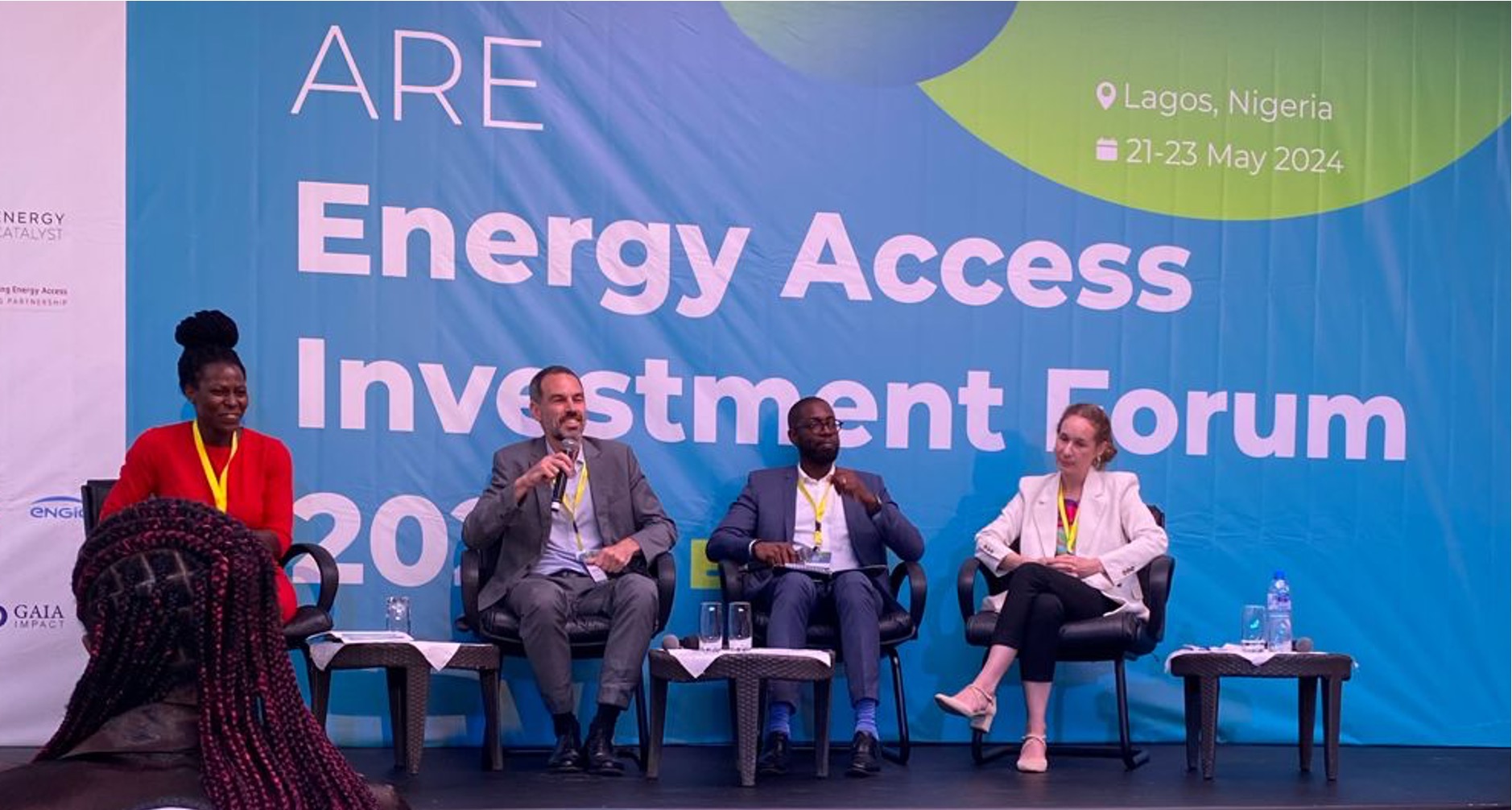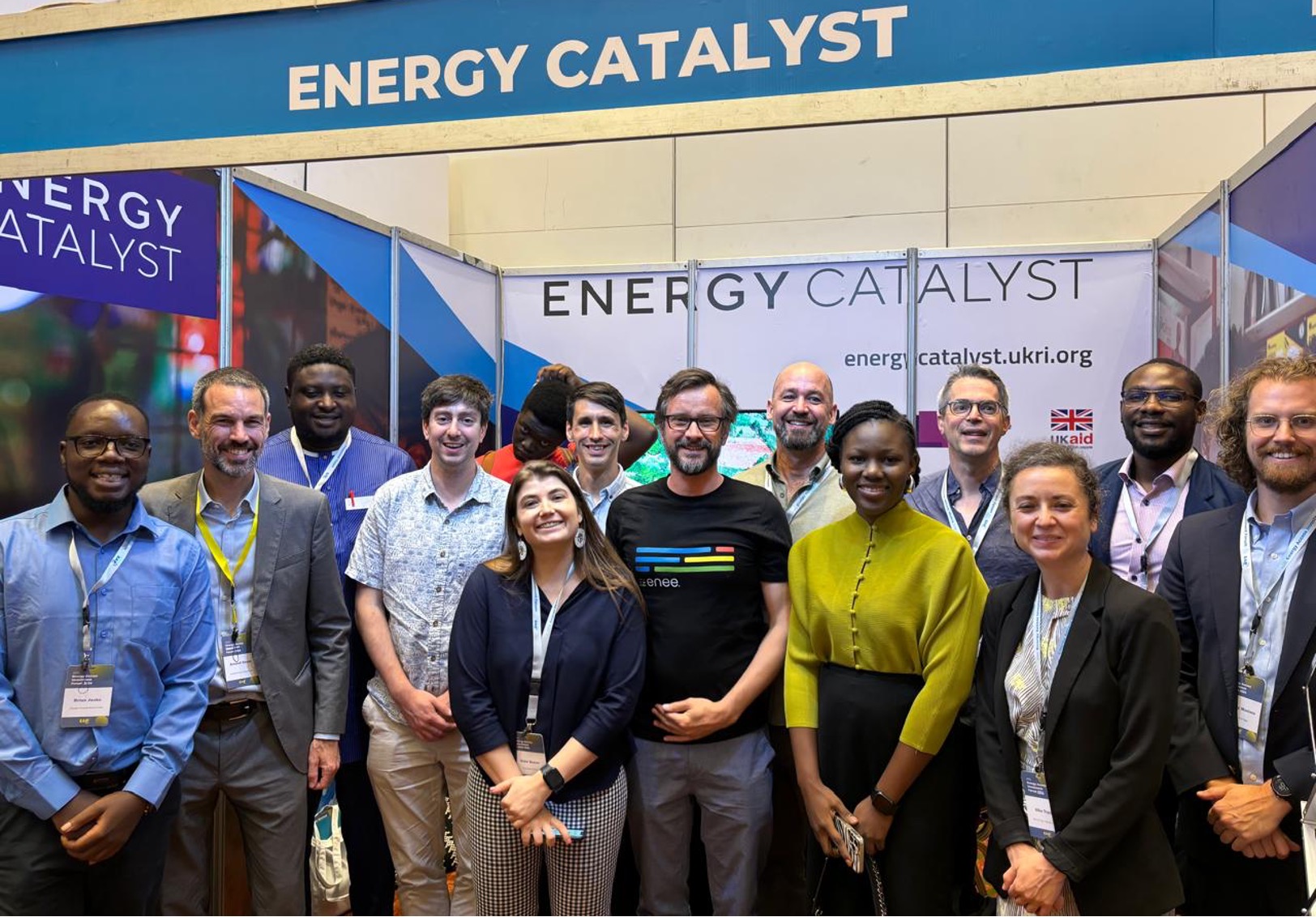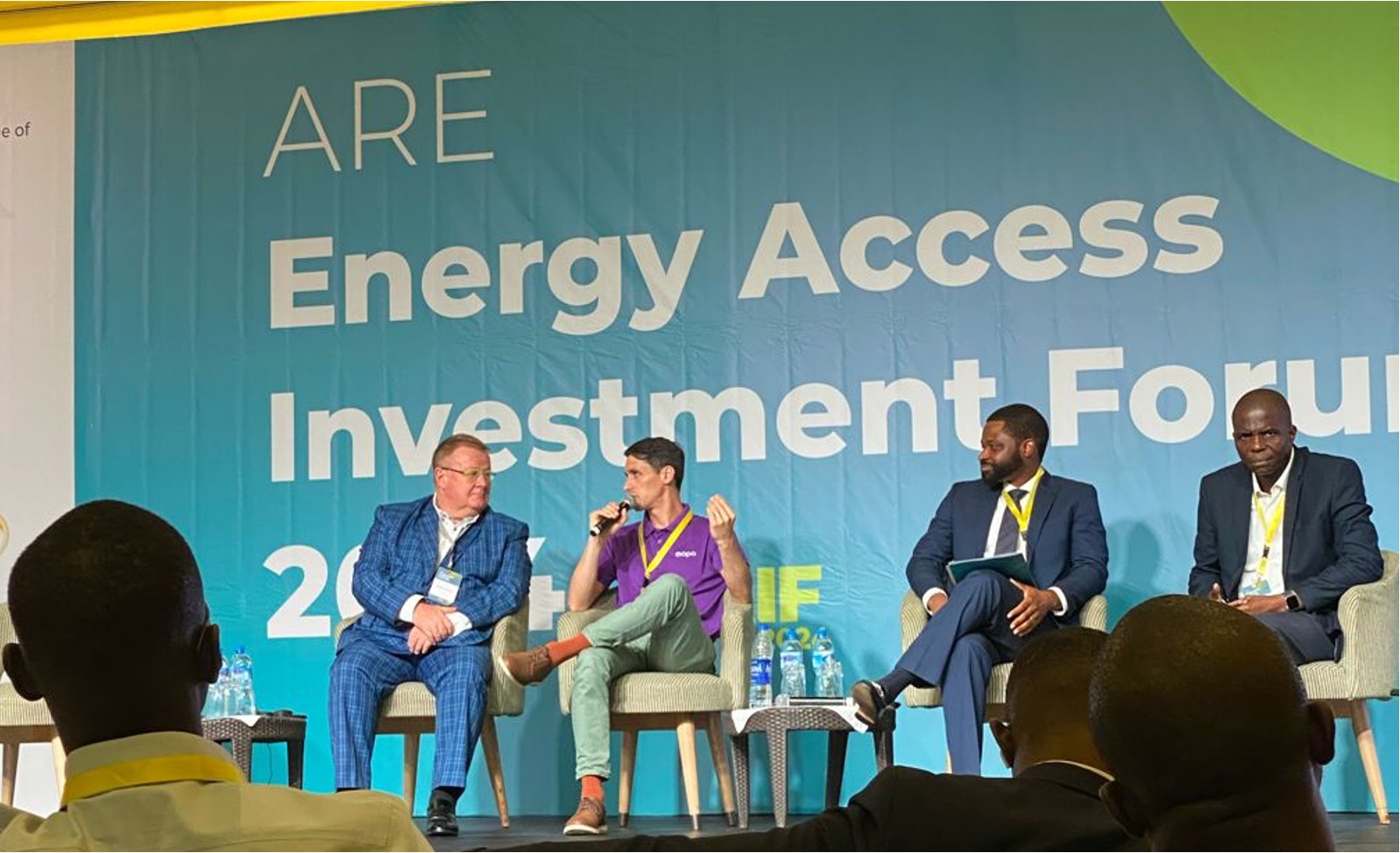ARE Energy Access Investment Forum 2024: Fostering innovation and scaling investments towards sustainable energy markets
Organised by the Alliance for Rural Electrification (ARE), the 2024 Energy Access Investment Forum was held in Lagos, Nigeria, from 21-23 May. With the aim of fostering innovation, scaling investments, accelerating energy markets, and embedding sustainability across sub-Saharan Africa, it gathered 2200 participants including developers, investors, policymakers, and regulators. As one of the forum’s strategic partners, Energy Catalyst brought a delegation eager to make the most of this valuable opportunity to foster business and investor partnerships, as well as engage in lively discussions.
The urgent need to scale investments was a recurring theme throughout the forum. As part of a session on blended finance for distributed renewable energy (DRE) projects, João Cunha from the African Development Bank emphasised that the vast shortfall of investments in such projects is hindering the closure of the energy gap that affects 675 million people globally. He remarked that “private capital is not flowing as it should, mainly due to lack of scale, vulnerable business models, high inflation, and ineffective de-risking tools”. He argued that there is much untapped potential in innovative financial mechanisms, such as blended finance, which need to be capitalised upon to reach the required investment of USD $35 billion per year until 2030.
In a fireside chat on the role of foreign direct investment in clean energy in frontier markets, Arnaud Henin, Managing Director of Energy Catalyst portfolio company Gommyr Power Networks, highlighted that the perceived risks of DRE projects in Africa is disproportionate to the actual risks, which hinders developers when raising capital. Local banks also tend to lack the tools and capacity needed to fund DRE projects. In that context, panelists discussed the critical role of Development Financial Institutions (DFIs) and Export Credit Agencies (ECAs) in providing the right level and size of investment, with the latter financing supply of materials from cheaper territories with generous repayment periods and loans guaranteed by governments. Nevertheless, according to Arnaud, the potential for creating impact in Africa is “phenomenal”, suggesting that a $1m investment in their projects in DRC, Nigeria and Mozambique would have a far greater impact than the same investment in more developed countries.

Our delegation of 11 Energy Catalyst-supported companies (Gommy Power Networks, Mobile Power, Soleil Power, Pyrogenesis, Greenage Technologies, enee.io, Green Power, Sure Chill, Azuri Technologies, Inclusive Energy and Direct Impact Partners) enjoyed a packed agenda of panel sessions, showcases, matchmaking sessions, and networking events. The cohort particularly targeted discussions delving into relevant themes such as the productive use of energy, support for small and medium-sized enterprises (SMEs), and blended financial instruments. Many project leaders were particularly intrigued to learn more about the Distributed Access through Renewable Energy Scale-Up (DARES) programme, announced by the World Bank in March this year. A hot topic at the forum, this groundbreaking initiative will leverage private sector investment and take a holistic technology-agnostic approach to revolutionising energy access across Nigeria and the wider African region.

Chris Longbottom, CEO of portfolio company Mobile Power took part in the panel session on the standardisation of tech, certification and manufacturing, in which he shared insights from his experience in the battery storage market. Whilst energy companies must adhere to rigorous standards, Chris underscored that the overriding priority was for companies “to go beyond standards” and provide high quality products, such as batteries, that last for the lifetime required by customers. He mentioned that Mobile Power conducted their own testing across 200 suppliers to ensure that this remained the case for their products and services.
Walking around the exhibition booths, our delegation observed a wide range of innovative products, including solar home systems, water pumping solutions, mesh grids, energy storage solutions, and IoT technology for remote monitoring. It was clear that creativity in design and technology was pushing product development forward at a striking pace, however, our some of our project leaders wondered if adherence to quality and standards risked going astray in the midst of such fevered innovation.

At the end of the forum, Brian Jaoko from Mercy Corps-Energy 4 Impact, who co-led the delegation, reflected on the need for a collaborative approach to increasing investment that brought in multiple stakeholders. Whilst developers and renewable energy service providers must showcase viable business models that can attract private capital beyond grants, governments and regulators play a crucial role in creating an environment conducive to investment and providing clarity on future energy plans. For their part, financial institutions and banks should expedite energy access programmes, similar to DARES, that facilitate access to finance for developers.
Brian remarked, “Energy access is a complex ecosystem and no single player possesses a magical solution that will work everywhere. So collaboration is essential to ensuring solutions are appropriately tailored to the complexities that arise from geography, size, and the nature of each project. More than ever, players must work hand-in-hand to accelerate momentum in the clean energy transition.”